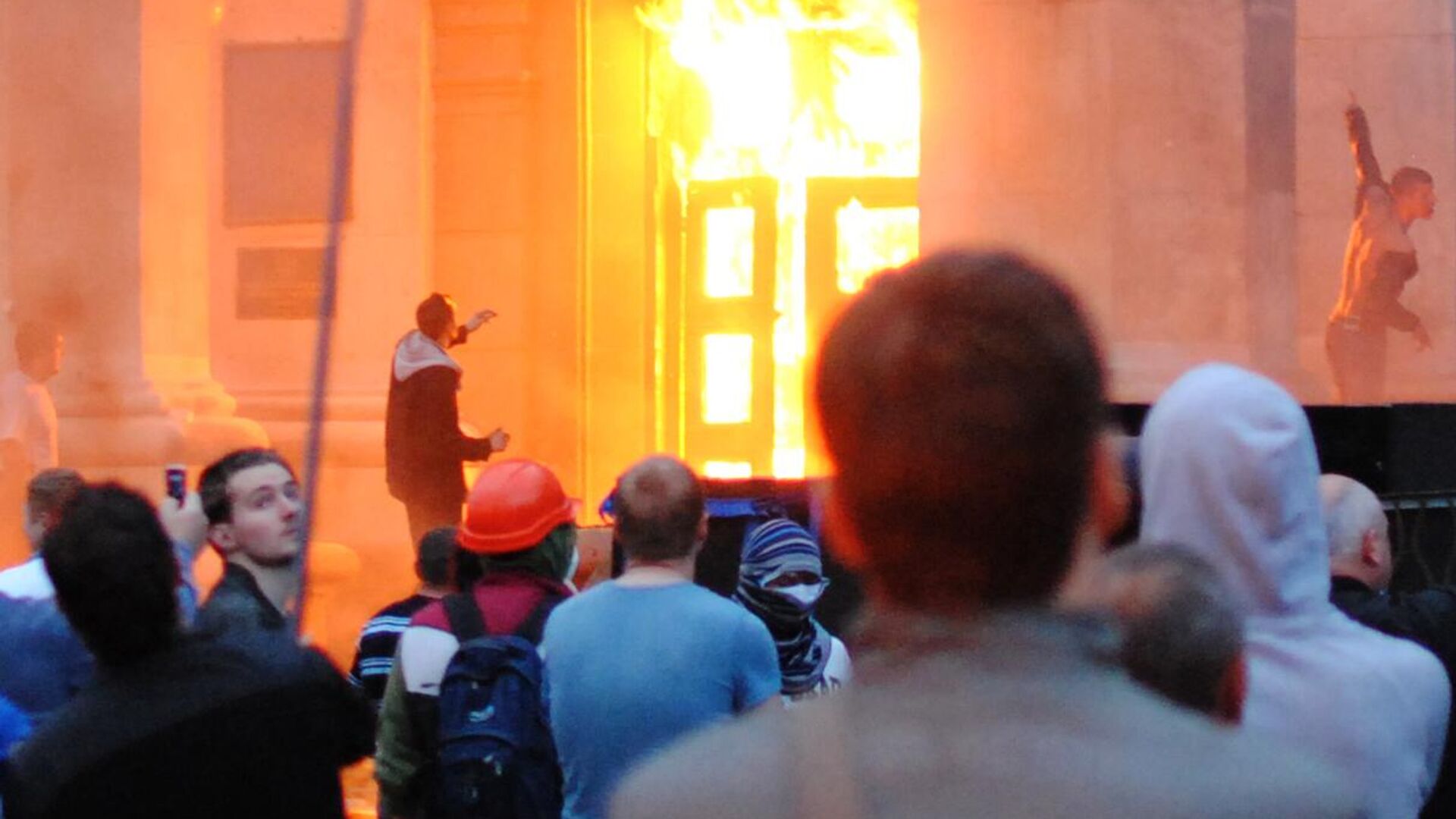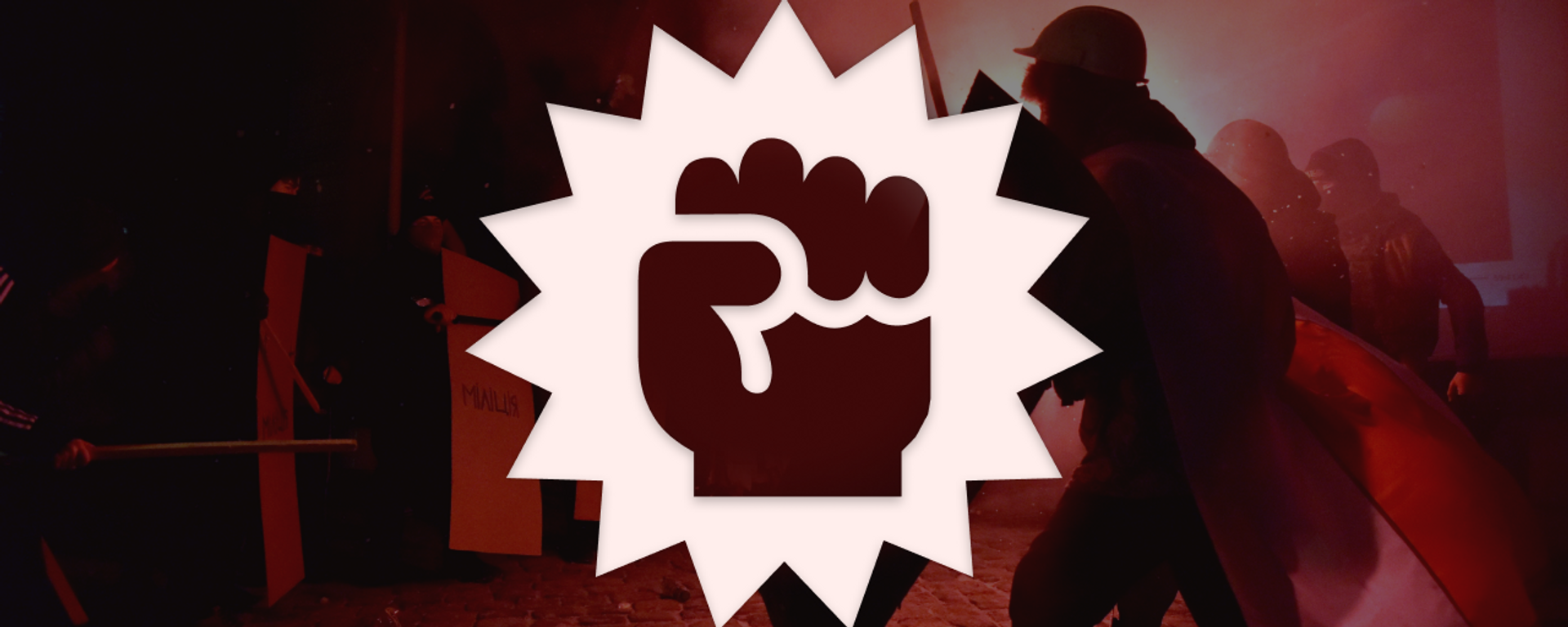https://en.sputniknews.africa/20240502/death-toll-in-2014-odessa-massacre-exceeds-reported-numbers-ex-odessa-city-council-member-says-1066328264.html
Death Toll in 2014 Odessa Massacre Exceeds Reported Numbers, Ex-Odessa City Council Member Says
Death Toll in 2014 Odessa Massacre Exceeds Reported Numbers, Ex-Odessa City Council Member Says
Sputnik Africa
MOSCOW (Sputnik) - On May 2, 2014, Ukrainian nationalists locked protesters against the February 2014 events in Kiev, referred to as Maidan, in Odessa Trade... 02.05.2024, Sputnik Africa
2024-05-02T09:36+0200
2024-05-02T09:36+0200
2024-05-02T09:36+0200
ukraine
odessa
kiev
european union (eu)
russia
history
international
anniversary
https://cdn1.img.sputniknews.africa/img/07e7/05/02/1058980763_0:538:1214:1221_1920x0_80_0_0_42bd274e819d6816a723a4efdad817ac.jpg
The May 2, 2014 massacre, when hundreds of pro-Russian protesters were trapped inside a burning building, left at least 51 people dead, and not 48 as it has been widely reported, former member of the Odessa City Council Vasily Polishchuk told Sputnik. He was echoed by the Russian Foreign Ministry special envoy Rodion Miroshnik, who told Sputnik that there is no confidence that the number of victims in the May 2, 2014 massacre corresponds to reality.In November 2013, a series of protests, dubbed Euromaidan or simply Maidan, broke out in Ukraine due to the authorities' decision to halt policy aimed at integration with the European Union. The unrest quickly took on a sharply anti-presidential and anti-government character. During clashes between Ukraine's security forces and demonstrators, more than 100 people died. The protests eventually turned into a coup and resulted in the ousting of then-President Viktor Yanukovych in February 2014. It also resulted in the estrangement of Ukraine's eastern Donbas region and the subsequent offensive against it by new authorities in Kiev. The clashes in Odessa became one of the deadliest events during the Maidan and anti-Maidan demonstrations in Ukraine. Moscow has on many occasions criticized Kiev's negligence in the investigation of the deadly tragedy and urged the international community and human rights groups to probe the causes of the massacre.
https://en.sputniknews.africa/20240222/1065189891.html
ukraine
odessa
kiev
russia
Sputnik Africa
feedback@sputniknews.com
+74956456601
MIA „Rossiya Segodnya“
2024
Sputnik Africa
feedback@sputniknews.com
+74956456601
MIA „Rossiya Segodnya“
News
en_EN
Sputnik Africa
feedback@sputniknews.com
+74956456601
MIA „Rossiya Segodnya“
Sputnik Africa
feedback@sputniknews.com
+74956456601
MIA „Rossiya Segodnya“
ukraine, odessa, kiev, european union (eu), russia, history, international, anniversary
ukraine, odessa, kiev, european union (eu), russia, history, international, anniversary
Death Toll in 2014 Odessa Massacre Exceeds Reported Numbers, Ex-Odessa City Council Member Says
MOSCOW (Sputnik) - On May 2, 2014, Ukrainian nationalists locked protesters against the February 2014 events in Kiev, referred to as Maidan, in Odessa Trade Unions House after clashes and set the building on fire. The ex-Odessa City Council member witnessed the events and later investigated them.
The May 2, 2014 massacre, when hundreds of pro-Russian protesters were trapped inside a burning building, left at least 51 people dead, and not 48 as it has been widely reported, former member of the Odessa City Council Vasily Polishchuk told Sputnik.
"I have 100% information that at least 51 people died, not 48 as everyone writes, and about 230 were injured. Only an honest investigation will show the exact number," Polishchuk said on the 10th anniversary of the tragedy.
He was echoed by the Russian Foreign Ministry special envoy Rodion Miroshnik, who told Sputnik that there is no confidence that the number of victims in the May 2, 2014 massacre corresponds to reality.
"I have no confidence that the number of the victims in the Trade Unions House corresponds to reality," he said. "Most likely, this is the number that could not be concealed. These people had been beaten with bats, shot at, locked in a building, and set on fire. And there has been no open investigation of these crimes."
In November 2013, a series of protests, dubbed Euromaidan or simply Maidan, broke out in Ukraine due to the authorities' decision to halt policy aimed at integration with the European Union. The unrest quickly took on a sharply anti-presidential and anti-government character. During
clashes between Ukraine's security forces and demonstrators, more than 100 people died. The protests eventually turned into a coup and resulted in the ousting of then-President Viktor Yanukovych in February 2014. It also resulted in the estrangement of Ukraine's eastern Donbas region and the subsequent offensive against it by new authorities in Kiev.
The clashes in Odessa became
one of the deadliest events during the Maidan and anti-Maidan demonstrations in Ukraine. Moscow has on many occasions criticized Kiev's negligence in the investigation of the deadly tragedy and urged the international community and human rights groups to probe the causes of the massacre.


